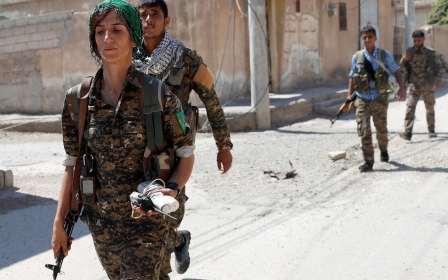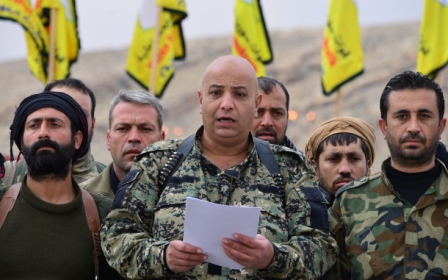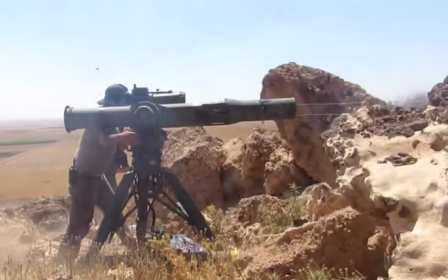Russia willing to send ceasefire monitors to south Syria, says US
Russia has expressed willingness to deploy monitors to prevent any violations of a ceasefire in southwest Syria by Syrian government forces, a senior US official said on Thursday.
Brett McGurk, US special envoy for the coalition against the Islamic State (IS) group, said the Washington is "very encouraged" by the progress since the ceasefire arranged by the United States, Russia and Jordan took effect on Sunday.
"The Russians have made clear they're very serious about this and willing to put some of their people on the ground to help monitor from the regime side," McGurk said. "They do not want the regime violating the ceasefire."
Russia is the main backer of Syrian President Bashar al-Assad, and Russian air power and Iranian-backed militias have helped put rebels at a disadvantage over the past year.
The "de-escalation agreement" for southwest Syria was announced after a meeting between US President Donald Trump and Russian President Vladimir Putin in Germany on Friday.
Trump, in a news conference in Paris on Thursday, said work was underway to negotiate a ceasefire in a second region of Syria.
"I think the president is referring to a very constructive discussion that he had with the Russians in building from this southwest agreement," McGurk said when asked about Trump's remark.
The United States has had "very constructive ... military-to-military discussions with the Russians about deconfliction arrangements" in recent weeks and is keen to explore the possibility of ceasefires in other areas, he said.
McGurk said the United States, Russia and Jordan had conducted extensive discussions to agree on a detailed line of contact as a basis for the southwest ceasefire, and were now looking at where monitors could be placed.
"That discussion is very much ongoing, and I'm hopeful over the next week or so it can get somewhere," he said.
Trump, who is fighting off allegations of ties between his election campaign and Moscow, said he would invite Putin to the White House, but now was not the right time for that.
"I don’t think this is the right time, but the answer is yes, I would," Trump said, when asked if he would extend such an invitation to the Russian leader.
Earlier on Thursday at a meeting of the anti-IS coalition in Washington, McGurk said Washington had pledged an additional $119m for humanitarian aid in Iraq following the recapture of Mosul from this month.
He urged efforts and funds to stabilise areas of Iraq and Syria where allied forces had defeated the militants.
"We have identified 100 critical stabilisation sites in and around Mosul, which will be the immediate focus for de-mining and restoration," McGurk said.
New MEE newsletter: Jerusalem Dispatch
Sign up to get the latest insights and analysis on Israel-Palestine, alongside Turkey Unpacked and other MEE newsletters
Middle East Eye delivers independent and unrivalled coverage and analysis of the Middle East, North Africa and beyond. To learn more about republishing this content and the associated fees, please fill out this form. More about MEE can be found here.




